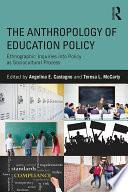
Kebijakan Pendidikan
Pengantar kebijakan pendidikan, konsep dasar dan isu-isu pendidikan, evaluasi kebijakan, kebijakan pendidikan islam, kebijakan pendidikan inklusi, kebijakan wajib belajar, kebijakan program sekolah gratis.
- ISBN 13 : 6231980693
- ISBN 10 : 9786231980694
- Judul : Kebijakan Pendidikan
- Pengarang : Andri Kurniawan, Aminatuz Zuhriyah, Ervian Arif Muhafid, Syahdara Anisa Makruf, Abdul Manap, Mohan Taufiq Mashuri, Rosita Sofyaningrum, Asti Febrina, Aminatuz Zuhriyah, Ervian Arif Muhafid, Syahdara Anisa Makruf, Abdul Manap, Mohan Taufiq Mashuri, Rosita Sofyaningrum, Asti Febrina, Aminatuz Zuhriyah, Ervian Arif Muhafid, Syahdara Anisa Makruf, Abdul Manap, Mohan Taufiq Mashuri, Rosita Sofyaningrum, Asti Febrina, Aminatuz Zuhriyah, Ervian Arif Muhafid, Syahdara Anisa Makruf, Abdul Manap, Mohan Taufiq Mashuri, Rosita Sofyaningrum, Asti Febrina,
- Kategori : Education
- Penerbit : Global Eksekutif Teknologi
- Bahasa : id
- Tahun : 2023
- Halaman : 151
- Google Book : https://play.google.com/store/books/details?id=L_quEAAAQBAJ&source=gbs_api
-
Ketersediaan :
Pengantar kebijakan pendidikan, konsep dasar dan isu-isu pendidikan, evaluasi kebijakan, kebijakan pendidikan islam, kebijakan pendidikan inklusi, kebijakan wajib belajar, kebijakan program sekolah gratis.









